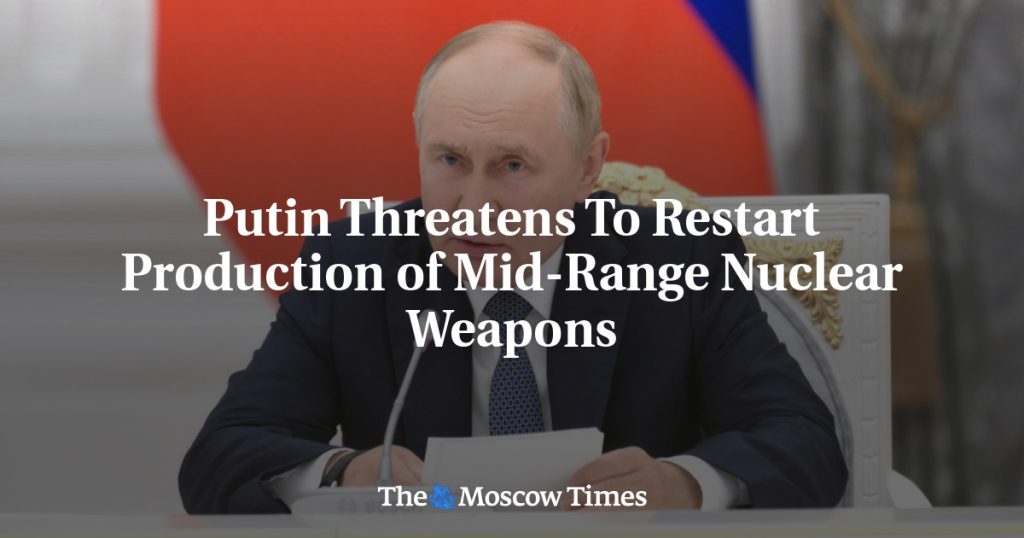Russian President Vladimir Putin issued a threat to relaunch production of intermediate-range nuclear weapons if the United States proceeds with plans to deploy missiles to Germany or elsewhere in Europe. He made this warning during a naval parade in St. Petersburg, stating that Russia would consider itself free from the moratorium on deploying medium- and short-range strike capabilities if the U.S. follows through with its plans. Putin also mentioned that Russia is in the final stages of developing several such systems and would mirror U.S. actions in deploying them in response.
The Intermediate-Range Nuclear Forces Treaty, which was signed by the U.S. and the Soviet Union in 1987, focused on limiting missiles that could travel between 500 and 5,500 kilometers. However, both countries withdrew from the treaty in 2019, citing violations by the other. Russia had previously stated that it would not restart production of such missiles as long as the U.S. did not deploy them abroad, but recent announcements of episodic deployments to Germany have prompted Putin’s warning. The Russian president expressed concern that important Russian sites could fall within the range of these missiles, increasing the risk of a strike on Russian territories.
Putin drew parallels between the current situation and events during the Cold War, specifically the deployment of American Pershing medium-range missiles in Europe in the 1980s. He highlighted the deployment of Typhon mid-range missile systems by the U.S. in Denmark and the Philippines as further evidence of escalating tensions. The Kremlin had previously cautioned that European capitals would be potential targets for Russian missiles if the U.S. proceeds with its deployment plans, signaling a return to the attributes of the Cold War with direct confrontation.
The announcement of potential U.S. missile deployments in Europe has reignited fears of a new arms race and increased tensions between Russia and the United States. Putin’s threat to resume production of intermediate-range nuclear weapons underscores the seriousness of the situation and the potential consequences of further military buildup in the region. The deployment of such missiles could significantly impact the security landscape in Europe and beyond, as both sides engage in a dangerous game of brinkmanship. With the specter of a new Cold War looming, diplomatic efforts to de-escalate tensions and prevent a nuclear arms race are more crucial than ever.
The decision to withdraw from the Intermediate-Range Nuclear Forces Treaty and the subsequent breakdown in arms control agreements between the U.S. and Russia have contributed to a deteriorating security environment globally. The threat of the resumption of production of intermediate-range nuclear weapons by Russia highlights the need for renewed dialogue and cooperation to address shared security concerns and prevent a new arms race. The current situation serves as a stark reminder of the dangers of miscalculation and brinkmanship in international relations, underscoring the need for diplomatic efforts to defuse tensions and prevent further escalation of conflict. Overall, the escalating tensions between Russia and the United States over missile deployment in Europe represent a dangerous development that could have far-reaching consequences for global security and stability.















